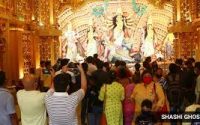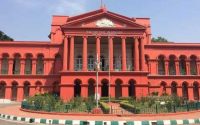$100 Website Offer
Get your personal website + domain for just $100.
Limited Time Offer!
Claim Your Website NowObjective for which my uncle died achieved: Mookerjee”s nephew
Source: outlookindia.com
Kolkata, Aug 5 Retired Justice Chittatosh Mookerjee, nephew of Bharatiya Jana Sangh founder Syama Pprasad Mookerjee, on Monday expressed happiness at the Centre repealing the Constitution”s Article 370, saying the objective for which his uncle fought and died have now been accomplished.
“I am happy that the causes, for which my uncle Syama Prasad Mookerjee fought and died, have now been fulfilled. He wanted for J&K a single law and single administration and unanimity in the application of the law,” Mookerjee, a former Chief Justice of Bombay and Calcutta High Courts, told media persons here.
As President of BJS – the precursor of the BJP – Syama Prasad Mookerjee was staunchly opposed to Article 370, and considered it a threat to national unity.He wanted to go to Jammu and Kashmir in 1953, but was arrested on the way and died as a detainee on June 23.
According to Chittatosh Mookerjee, the decision was overdue.
The 90-year-old recalled that he was not witness to Maharaja of Kashmir Hari Singh signing the Instrument of Accession to India on October 26, 1947, but had during that period, closely followed the discussions about the Kashmir situation sitting in his uncle”s house.
“I was present in the house of my uncle where these discussions and tension were going on,” he said.
Going down memory lane, Chittatosh Mookerjee remembered those tumultuous days soon after India”s Independence. “There was a question of lapsing of the paramountcy of the Maharajas, as we called the rulers of the native states.
“So, the Maharaja was hesitant to join the Indian Union and the discussions were going on,” he said.
Asked about the legality of the Centre”s move, Chittatosh said he would rather leave it to the Supreme Court and not comment on it.
Praising the BJP, he said: “They at least had the courage to implement what they had promised (in the election manifesto).”
“It takes a lot of courage to carry it through but whether it was a wise decision, that”s for the people to decide. Or whether there are any legal infirmity in it for that there is the Supreme Court whose saying will be the final thing,” he added.



